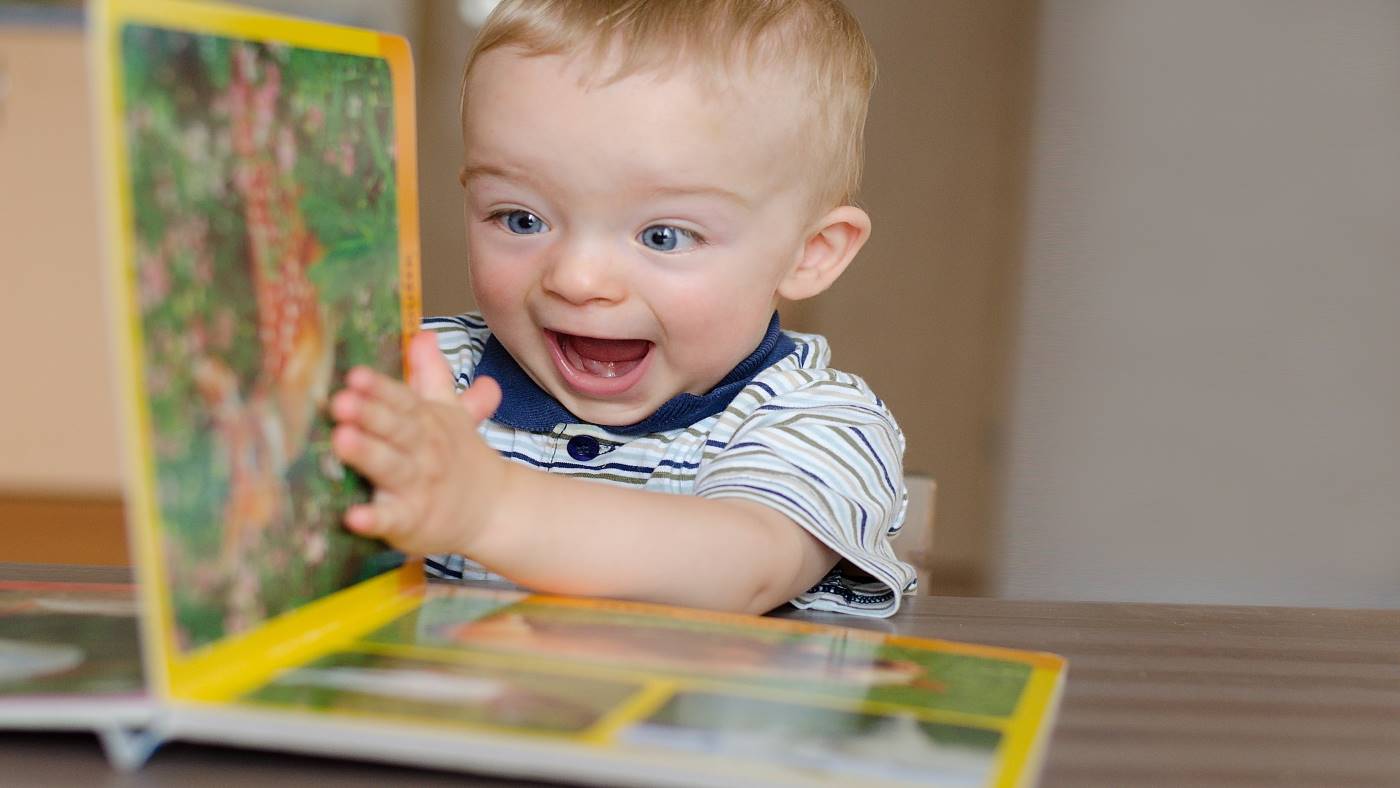What a page turner! Your baby is showing you some incredible skills

Books are fantastic. We love reading, and we know your baby will too. Books offer moments of peace, joy or comfort, in addition to a wide range of sizes, rhymes, themes and ways to get involved. All this before we even think about the remarkable skills your baby needs to turn a page.
My turn, my turn
You might have noticed your baby is trying to interact more when you read together. Are you reading a page when a little arm swoops in and tries to turn to the next page?
If so, embrace it.
Yes, they might turn four or all the pages at once, but don’t sweat it. Your baby will be proud of their achievement and happy for you to carry on reading, no matter what page you arrive at.
Brain power and fine motor skills
When they turn a page, your baby is showing you that they understand how to use a book. Not only that, but they are showing you that they are motivated to join in.
Additionally, they have started to understand that a page needs to be turned.
While you are busy reading, your baby is also busy. They are planning a movement to help you with the story's flow.
Planning action
Planning such a move requires a lot of brain power.[1] Combine that with their developing fine motor skills and you have the makings of a competent page-turner. This is an ability that is essential when reading and documenting all kinds of information as they grow and develop.
When they turn a page, multiple processes must flow together. Your baby will be coordinating the following thoughts and actions – not necessarily in this order:[1]
- Thought
- Planning
- Movement
- Control of the arm
- Control of the hands
- Control of the fingers
- Postural control
- Eye tracking
- Motivation
So next time you reach the back cover of your story, when you have only just started to read the first paragraph, think about all the skills your baby is coordinating.
References:
[1] Von Hofsten, C. (2004). An action perspective on motor development. TRENDS in Cognitive Sciences Vol.8 No.6 June 2004.